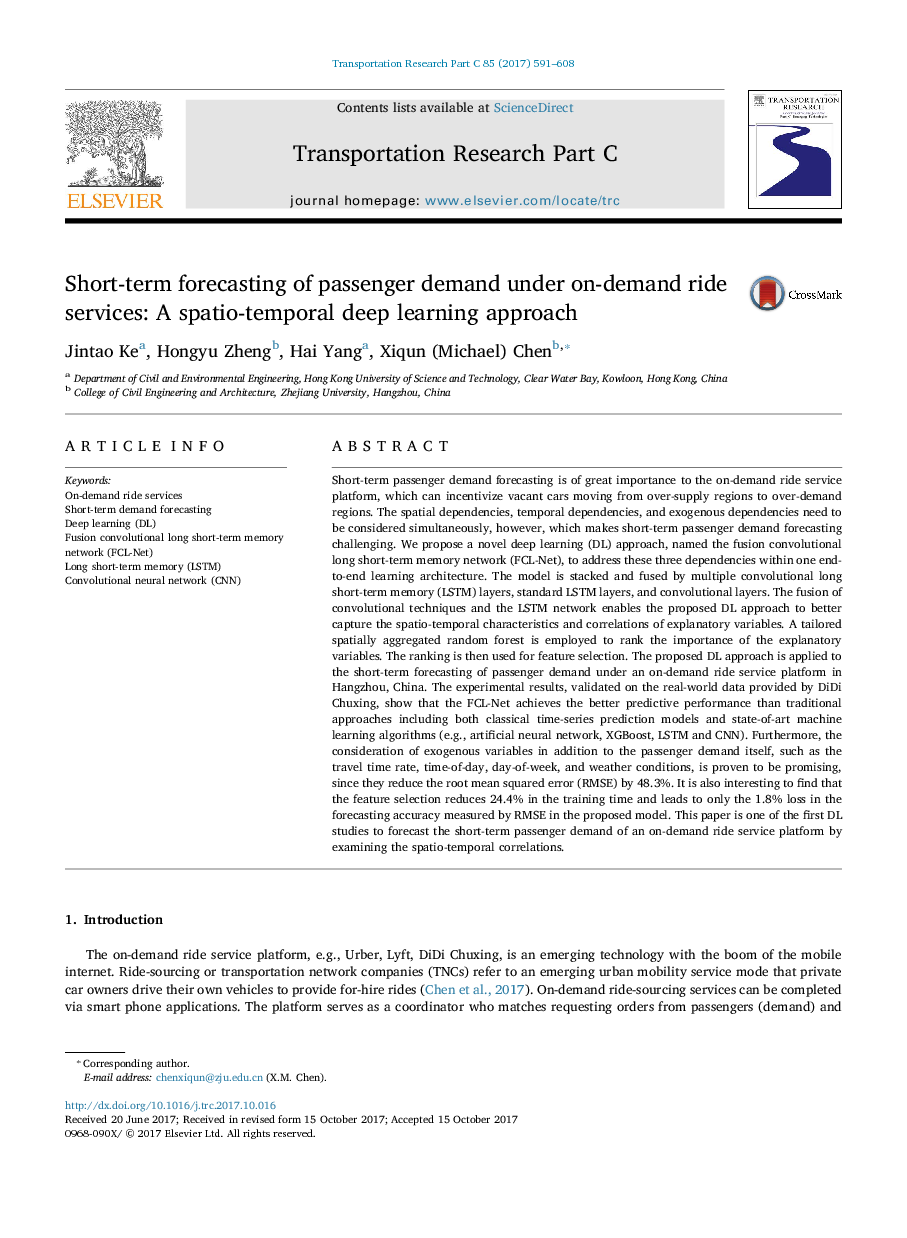ترجمه فارسی عنوان مقاله
پیش بینی کوتاه مدت تقاضای مسافر تحت خدمات سوار بر تقاضا: یک روش یادگیری عمیق و فوری
عنوان انگلیسی
Short-term forecasting of passenger demand under on-demand ride services: A spatio-temporal deep learning approach
| کد مقاله | سال انتشار | تعداد صفحات مقاله انگلیسی |
|---|---|---|
| 143315 | 2017 | 18 صفحه PDF |
منبع

Publisher : Elsevier - Science Direct (الزویر - ساینس دایرکت)
Journal : Transportation Research Part C: Emerging Technologies, Volume 85, December 2017, Pages 591-608

